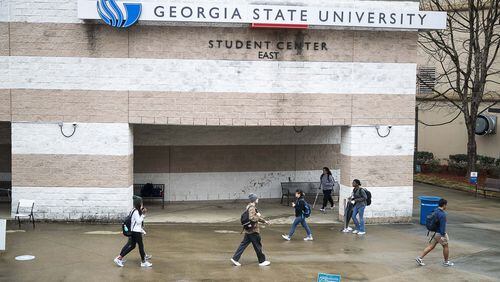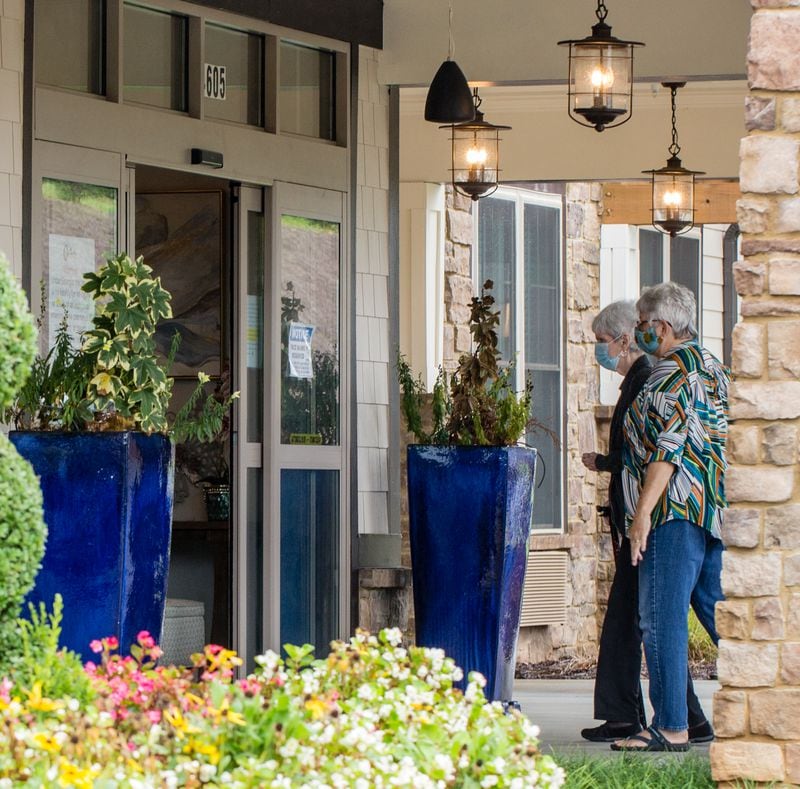Here’s an update on some news involving COVID-19 vaccines and treatments:
A Georgia State University team released research Thursday showing progress on an oral medication that could be used to treat COVID-19.
The drug, Molnupiravir, also known as MK-4482/EIDD-2801, completely suppresses virus transmission within 24 hours, the Georgia State team said. The research has been peer-reviewed with findings published on the website, Nature Microbiology.
The researchers tested the drug in infected ferrets, which are often used for such research because they are vulnerable to the same respiratory infections that impact humans.
“This is the first demonstration of an orally available drug to rapidly block SARS-CoV-2 transmission,” said Georgia State professor Richard Plemper, who specializes in understanding how influenza virus and human pathogens of the paramyxovirus family enter cells and replicate their genetic information. “MK-4482/EIDD-2801 could be game-changing.”
Molnupiravir is currently in advanced phase II/III human clinical trials carried out by Merck, one of the world’s largest pharmaceutical companies. Ridgeback Biotherapeutics, a Miami-based biotechnology company, is collaborating with Merck on the drug as a COVID-19 treatment. No results from the trials have been released yet.
The study was funded by public health service grants from the National Institutes of Health/National Institute of Allergy and Infectious Diseases.
Credit: Jenni Girtman
Credit: Jenni Girtman
Group wants long-term care facility residents to get vaccines first
The American Health Care Association and the National Center for Assisted Living wrote a letter to the nation’s governors Thursday urging them to distribute a COVID-19 vaccine to all long-term care facilities, nursing homes and assisted living communities, before any other groups.
The letter notes the disease’s disproportionate impact of those facilities, saying more than 100,000 long-term care residents have died from COVID-19. About 275,000 Americans have died from COVID-19, according to most estimates.
A U.S. Centers for Disease Control and Prevention committee on Tuesday recommended that the vaccine be distributed first to health care workers and residents of long-term care facilities. Georgia Gov. Brian Kemp has said he plans to go by that recommendation.
Two companies, Pfizer and Moderna, are awaiting Emergency Authorization Use requests from the U.S. Food and Drug Administration for their COVID-19 vaccines.
Carters express support of COVID-19 vaccine efforts
Former U.S. President Jimmy Carter and his wife, Rosalynn, said Thursday that they were in full support of COVID-19 vaccine efforts and encourage everyone who is eligible to get immunized as soon as it becomes available in their communities. Rosalynn Carter became a staunch advocate for vaccines as First Lady of Georgia and subsequently cofounded Vaccinate Your Family in 1991 to ensure equitable access to vaccines for people of all ages and to remove barriers to immunization.
Meanwhile, Former Presidents Barack Obama, George W. Bush and Bill Clinton have reportedly volunteered to get their COVID-19 vaccines on camera to promote public confidence in the vaccine’s safety once the U.S Food and Drug Administration authorizes one.
Staff writer Ernie Suggs contributed to this article.









